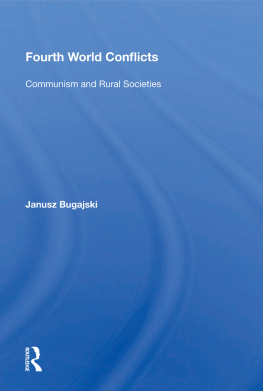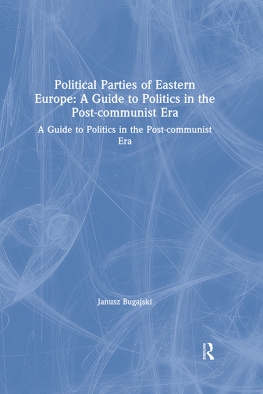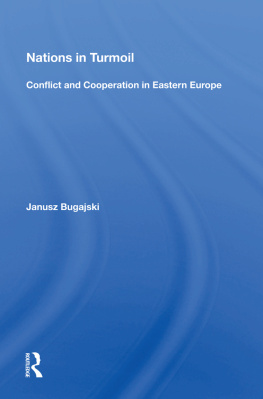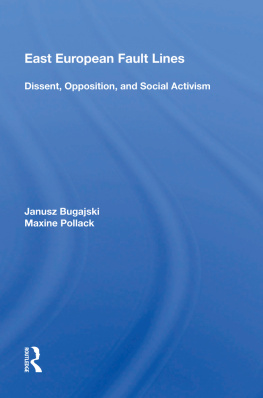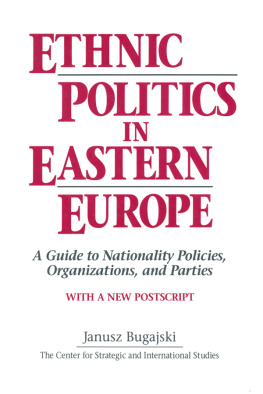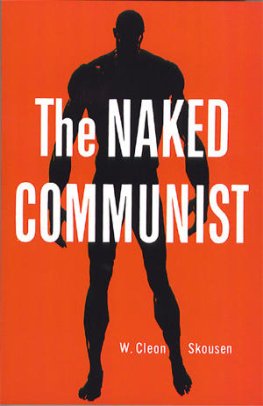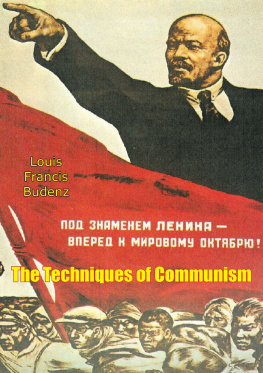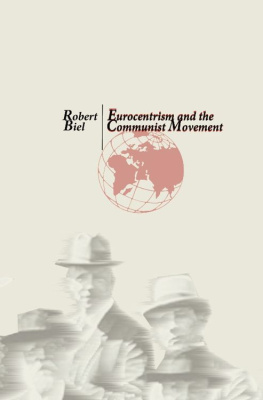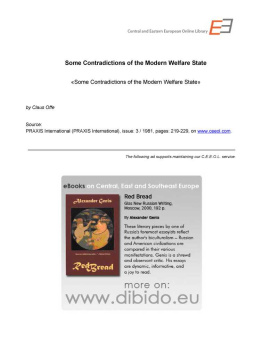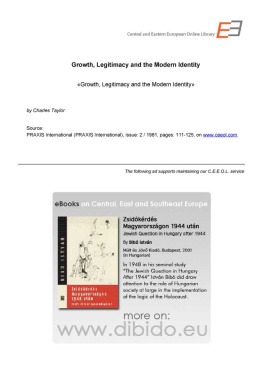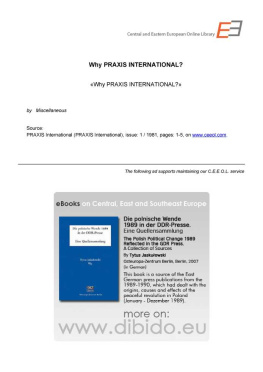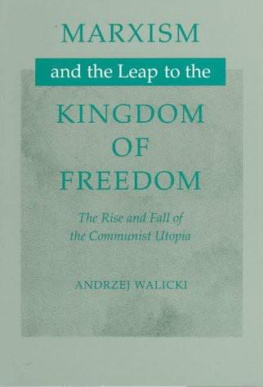Fourth World Conflicts
Fourth World Conflicts
Communism and Rural Societies
Janusz Bugajski
First published 1991 by Westview Press
Published 2018 by Routledge
52 Vanderbilt Avenue, New York, NY 10017
2 Park Square, Milton Park, Abingdon, Oxon OX14 4RN
Routledge is an imprint of the Taylor & Francis Group, an informa business
Copyright 1991 by Taylor & Francis
All rights reserved. No part of this book may be reprinted or reproduced or utilised in any form or by any electronic, mechanical, or other means, now known or hereafter invented, including photocopying and recording, or in any information storage or retrieval system, without permission in writing from the publishers.
Notice:
Product or corporate names may be trademarks or registered trademarks, and are used only for identification and explanation without intent to infringe.
Library of Congress Cataloging-in-Publication Data
Bugajski, Janusz, 1954-Fourth
World conflicts: communism and rural societies / Janusz
Bugajski.
p. cm.
Includes index.
ISBN 0-8133-8072-3
1. CommunismDeveloping countries. I. Title.
HX517.8.B85 1991
335.43'09172'4dc20 90-42561
CIP
ISBN 13: 978-0-367-01616-6 (hbk)
To Maxine
for all the hard work, support, and patience throughout this long project
Contents
- PART ONE
COMMUNIST THEORY AND HISTORY - PART TWO
COMMUNIST INSURGENCIES - PART THREE
COMMUNIST REGIMES - PART FOUR
COMMUNIST PERSPECTIVES
- PART ONE
COMMUNIST THEORY AND HISTORY - PART TWO
COMMUNIST INSURGENCIES - PART THREE
COMMUNIST REGIMES - PART FOUR
COMMUNIST PERSPECTIVES
Guide
I would like to thank the Lynde and Harry Bradley Foundation for their generous support for this project.
Research material was obtained at the Library of Congress and Georgetown University in Washington, D.C., the Indochina Archives at the University of California, the School of Oriental and African Studies at London University, and several other libraries and research institutions in Europe and the United States. Valuable information was also obtained during a fact-finding tour of Guatemala, El Salvador, and Nicaragua.
Invaluable research assistance was provided by Monika Michejda, Alina Zyszkowski, Olga Petrovich, Heidi Liszka, Jean Carlo Rivera, Carolyn Winn, Alison Hoffman, Dorothy Tomaszewski, Tamara O'Seep, Ellen Stroud, Maria Bucur, Jasmine Kosovic, Ilinca Popescu, Christina Jordan, Kevin Callinan, Stefan Sullivan, Edward Horgan, and Peter Gajda.
Special thanks go to Aimee Breslow, my research coordinator and administrative assistant at the Center for Strategic and International Studies in Washington, D.C.
Janusz Bugajski
This study consists of a comprehensive examination of Communist policies toward rural populations and indigenous societies in a cross-section of developing Third World states. It explores the universal threads and national adaptations of Communist or Marxist-Leninist theory and praxis. Marxism-Leninism consists of a system of theories and predictions professed by revolutionary movements and socialist regimes to validate their actions and objectives. Marxism is depicted as a universally applicable explanation of historical development, avowedly containing scientific prescriptions for revolutionary change. Leninism provides Marxism with a practical organizational framework. It blends theory with flexible strategies for seizing and consolidating power, for implementing radical programs, and achieving the historic goals contained in the Marxist vision. Although the Communist movement is not monolithic it contains a common ideological core and political methodology focused on the reorganization of socio-economic patterns and the construction of a socialist mode of production.
The term Fourth World has been employed by political scientists, sociologists, and economists to refer to the poorest and most powerless underdeveloped states or to the most underprivileged sectors of such countries. For the purposes of this study Fourth World will signify a whole range of tribal and peasant societies that often form the bulk of the population in Third World nations. In this context, a society is generally characterized as "indigenous" according to the following criteria: traditional rural habitation, a reliance on subsistence pursuits and local trading networks, together with extensive preservation of native social organization, culture, language, and religious life. Despite their great diversity, Fourth World societies share a number of attributes, including a low level of political and economic integration in the state system, an inferior political status, and an underprivileged economic position. Indigenous tribal groups may constitute minorities inhabiting peripheral or thinly populated areas, but the peasantry often forms the majority of the populace in developing agrarian countries.
In stateless societies the political realm is closely bound with other social activities. The range of "statelessness" and social structure is enormous; it may include acephelous unstratified communities, segmentary lineage systems, corporate kinship networks, and various forms of ranking and hereditary chieftanship. Some societies possess an embryonic state-like structure, with supra-kinship authorities, specialized political functionaries, and class-like economic divisions. The economic orientation of peasant societies is likewise not exclusively geared toward subsistence; it may combine familial self-sufficiency with production for extra-household distribution. Kinship ties are important in community or ganization, economic cooperation, political decision making, and ritual life. In contrast to many tribal peoples, peasant societies traditionally maintain more pronounced relations with outside agencies, including large landlords and state officials.
Communists in pursuit of socialist revolution have remained ambivalent about rural inhabitants. Although Leninists recognize the key position of various agrarian sectors during their struggle for power, as well as the importance of the peasantry for economic production, they also emphasize the revolutionary shortcomings and reactionary tendencies of rural dwellers. Communist programs in Third World countries with a small industrial working class have been geared toward mobilizing the peasant masses in the service of the Party, while preventing extensive embourgeoisement and the formation of independent rural interest groups. Communist takeovers are not determined by the level of poverty and the degree of economic inequality, but are the product of systematic military and political mobilization by a committed core of well organized activists. This self-proclaimed vanguard manipulates numerous public grievances to elicit popular support and enforce public compliance whilst destabilizing the incumbent government.
Several ideological objectives and political strategies are pursued by Marxist-Leninist Parties vis-a-vis tribal and peasant populations. After a successful takeover and consolidation of power, each Communist state embarks on a program of rebuilding agriculture and reorganizaing the countryside on a "socialist basis." Although there is no single rigid schedule for socialist construction, as numerous local variables intervene, the pivotal components of this revolutionary transformation can be mapped out. In dealing with "pre-capitalist" or "pre-feudal" societies, Leninist Parties aim at "detribalization" to eliminate traditional systems of loyalty and authority. An equivalent process of "depeasantization" is recognizable among the agricultural population. Although detribalization is pursued by various Third World governments seeking national unification and political centralization, Marxist-Leninist regimes combine ideological justifications for the "retrograde" nature of tribalism with an alleged historical mission of forging a socialist society directed by the vanguard Party. Communists attack tribal autonomy and peasant self- reliance as retrogressive conservatism and seek to eradicate all "pre-socialist" economic arrangements during the process of modernization, The detribalization program may also involve state-enforced population transfers and the sedentarization of nomadic or semi-migratory groups in controllable territorial-political units. Resettlement programs may be implemented primarily for economic reasons in areas which are deemed productive by state officials, or for political purposes to liquidate opposition and assure firm state control. In some instances minority nations are forcibly resettled in majority zones or dispersed throughout a wide area. In other cases they are colonized by the majority nationality in order to dilute and extinguish separate national identities.


